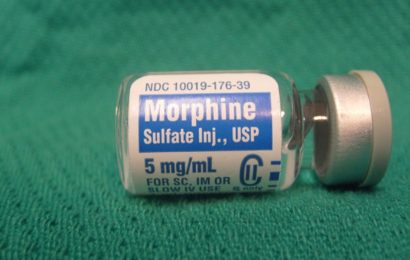Overview of Hepatitis C and HCV
Hepatitis refers to the inflammation of one’s liver and it has different strains, among which Hepatitis A, Hepatitis B, and Hepatitis C are common. Hepatitis C thus refers to a liver disease takes place from the hepatitis C virus, abbreviated as HCV. HCV is responsible to cause acute as well as chronic hepatitis, while it ranges from mild illness to severe one.

Even depending on individual condition, hepatitis C may last from only a few weeks to a highly serious and lifelong illness. HCV i.e. Hepatitis C Virus constitutes a bloodborne virus and a prime mode of infection caused due to exposure to the human blood in small quantities. Positively, HCV is curable with regular intake of Harvoni, a medication for HCV and a few necessary precautions, as recommended by the doctor.
Symptoms of Hepatitis C
Acute Hepatitis C
In most of the cases, an individual does not possess any definitive symptom to identify the problem of Hepatitis C. However, in some cases, patients experience following common symptoms-
- Abdominal discomfort or pain
- Fever
- Reduction in Appetite
- Fatigue
- Joint Pain
- Vomiting and Nausea
- Clay or grey colored stools
- Dark urine
- Yellowing of skin with whites of eyes i.e. jaundice
Chronic Hepatitis C
When HCV remains present in an individual’s blood for 6months or even more after he/she has dealt with the acute infection, Hepatitis C reaches to the chronic condition. Doctors confirm a chronic Hepatitis C condition in case he detects the presence of the respective virus by testing 2 times during a particular period.
In the case of chronic Hepatitis C, individuals experience ongoing episodes related to persistent fatigue, abdominal pain or discomfort, and joint pain. Beside this, chronic infection after 25years to 30years may lead to fibrosis or scarring of the liver and later on, progresses to cirrhosis condition, in which the liver scars completely, liver failure and liver cancer.
Causes of Hepatitis C
As a bloodborne type of virus, the hepatitis C virus transmits into the body of an individual through-
- Injecting any drug use based on the sharing of an infected injection equipment
- Inadequate sterilization or reuse of needles, syringes and other medical equipment in any healthcare setting
- Transfusion of any unscreened blood and other blood products
- Transmission of HCV via sexual intercourse and it may even pass on to the baby from her infected mother.
However, HCV does not spread from food, breast milk, water or any other form of casual contact, like kissing, hugging and sharing of any food item or drink with an infected individual.
Treatment to Cure HCV
Medication for HCV is the best and effective treatment to cure both acute and chronic forms of Hepatitis C. However, the selection of a particular medicine and the treatment duration depends on a particular genotype of the infected virus. Genotype 1a is prevalent in most of the cases and today, you will find many treatment options based on a combination of strong antiviral medications.
DAAs Agents to Treat Hepatitis C
DAAs is the acronym for Direct-Acting Anti-virals and they are latest agents to treat Hepatitis C. These medicines perform their functions by targeting particular steps present in the entire HCV life cycle and thereby, disrupt the reproduction of HCV cells.
Harvoni-A Latest Hepatitis C Treatment Medication
Harvoni is the latest medication for HCV and treatment of hepatitis C. As a combination pill, it contains sofosbuvir/sovaldi and ledipasvir. For most of the individuals with mentioned genotypes, Harvoni is one of the ribavirin-free and interferon-free treatment options available to cure hepatitis C. However, if you are still facing difficulty in treatment of your Hepatitis C problem, you may do better with the addition of ribavirin medicine with Harvoni. Successful treatment thus reduces your risk related to hepatitis C long-term complications, which include liver cancer, cirrhosis, and requirement of a liver transplantation surgery.
Mechanism of Harvoni to Cure Hepatitis C
Harvoni incorporates two different direct-acting antiviral drugs to target different steps related to the lifecycle of HCV. So fosbuvir is a type of nucleotide and it analogs the polymerase inhibitor of HCV to block the polymerase enzymes often used by the virus for its reproduction. On the other side, if we talk about ledipasvir, it is a type of HCV NS5A replication-based complex inhibitor. It interferes with other protein components used primarily by HCV for reproduction.









